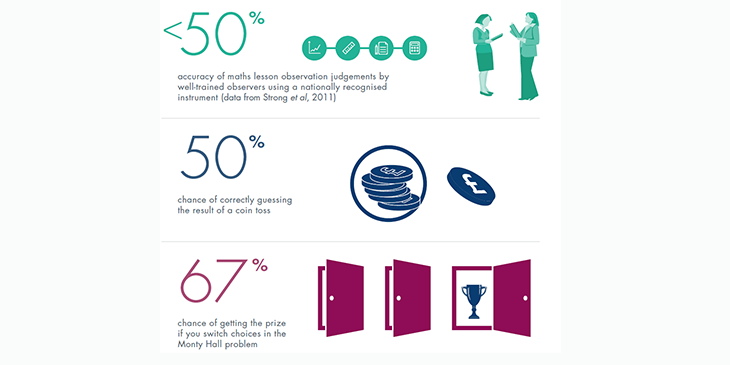05 July 2017

How can mathematics teaching be measured?
- It is hard to measure good maths teaching
- Triangulation of student attainment, student evaluation and lesson observation provides the most stable measure of maths teaching
- Lesson observation alone is unreliable, but can be improved by using multiple observers
- Several possible instruments have been developed to help measure the effectiveness of maths teaching; choice of these should be based on an identified purpose of measurement
- Decisions about teachers’ employment are currently often based on inadequate measures or proxies
- Factors other than teacher effectiveness such as schools' affluence and resources have effects on pupil outcomes
View Espresso